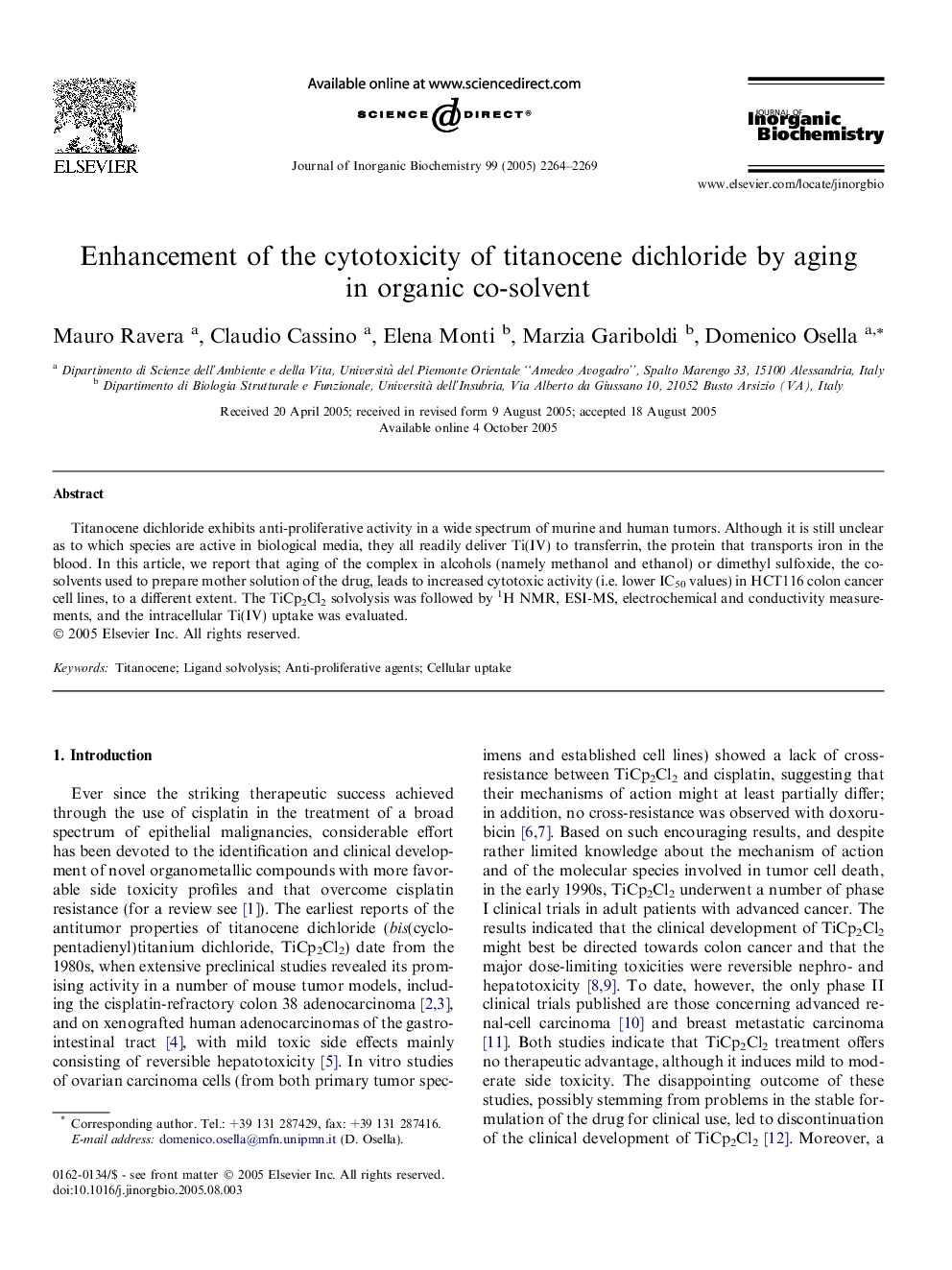| Article ID | Journal | Published Year | Pages | File Type |
|---|---|---|---|---|
| 1317440 | Journal of Inorganic Biochemistry | 2005 | 6 Pages |
Abstract
Titanocene dichloride exhibits anti-proliferative activity in a wide spectrum of murine and human tumors. Although it is still unclear as to which species are active in biological media, they all readily deliver Ti(IV) to transferrin, the protein that transports iron in the blood. In this article, we report that aging of the complex in alcohols (namely methanol and ethanol) or dimethyl sulfoxide, the co-solvents used to prepare mother solution of the drug, leads to increased cytotoxic activity (i.e. lower IC50 values) in HCT116 colon cancer cell lines, to a different extent. The TiCp2Cl2 solvolysis was followed by 1H NMR, ESI-MS, electrochemical and conductivity measurements, and the intracellular Ti(IV) uptake was evaluated.
Related Topics
Physical Sciences and Engineering
Chemistry
Inorganic Chemistry
Authors
Mauro Ravera, Claudio Cassino, Elena Monti, Marzia Gariboldi, Domenico Osella,
